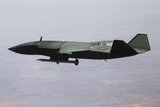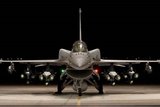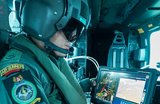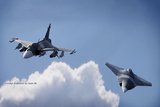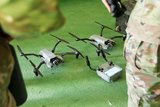Honeywell and PT Dirgantara to explore airborne safety systems
The partners will assess whether Honeywell’s Military Airborne Collision Avoidance System (MILACAS) would fit with the TNI-AU's C-130 Avionics Upgrade Programme. (Photo: Wikimedia Commons)
Honeywell and PT Dirgantara Indonesia (PTDI) signed an MoU at the Indo Defence 2022 event to explore sales opportunities for airborne safety systems for the Indonesian Air Force (TNA-AU), the companies announced on 4 November.
The partners will assess whether Honeywell’s Military Airborne Collision Avoidance System (MILACAS) would fit the IDAF’s C-130 Avionics Upgrade Programme.
MILACAS is a traffic alert collision avoidance system designed for better range and quality of surveillance broadcast on military aircraft.
According to Honeywell, it provides up to two times better surveillance range than an enhanced traffic alert collision avoidance system that significantly reduces the risk of collision.
The system is approved by civil and military frequency management organisations, including the US National Telecommunications and Information Administration for installation on all military aircraft.
In addition to upgrading its legacy C-130 fleet, Indonesia has also ordered five C-130J-30 Super Hercules.
Related Equipment in Defence Insight
More from Air Warfare
-
![Singapore Airshow 2026: Rafael highlights tailored effector solutions for different operational needs]()
Singapore Airshow 2026: Rafael highlights tailored effector solutions for different operational needs
Shephard spoke with Rafael’s CEO about the company’s effector offerings as well as his perspective on one-way attack drones.
-
![World Defense Show 2026: L3Harris to achieve full-rate production of Viper Shield soon]()
World Defense Show 2026: L3Harris to achieve full-rate production of Viper Shield soon
L3Harris has completed the production candidate software load for its Viper Shield airborne electronic warfare system and is conducting sea trials with its VAMPIRE counter-drone system.
-
![Singapore Airshow 2026: Airbus-RSAF H225M teaming tests point to future scalability]()
Singapore Airshow 2026: Airbus-RSAF H225M teaming tests point to future scalability
The tests between a Republic of Singapore Air Force H225M and Airbus Flexrotor uncrewed aerial system were designed to allow the crew to receive and process real-time data from the UAS while maintaining direct command and control.
-
![Singapore Airshow 2026: Saab eyes “share” in future fighter market, targets 2027 CCA demo flight]()
Singapore Airshow 2026: Saab eyes “share” in future fighter market, targets 2027 CCA demo flight
The Swedish government is expected to make a decision on the next steps of the Future Fighter System Concept programme by 2030, with the current second phase focusing on technology knowledge expansion and demonstration flights.
-
![Singapore Airshow: Red Cat ramps up portfolio development amid “key” APAC opportunities]()
Singapore Airshow: Red Cat ramps up portfolio development amid “key” APAC opportunities
In the wake of its 1,842% year-on-year revenue increase in Q4 2025, Red Cat sees mass opportunities in the Asia-Pacific region as the company eyes an ongoing production increase and market growth.








